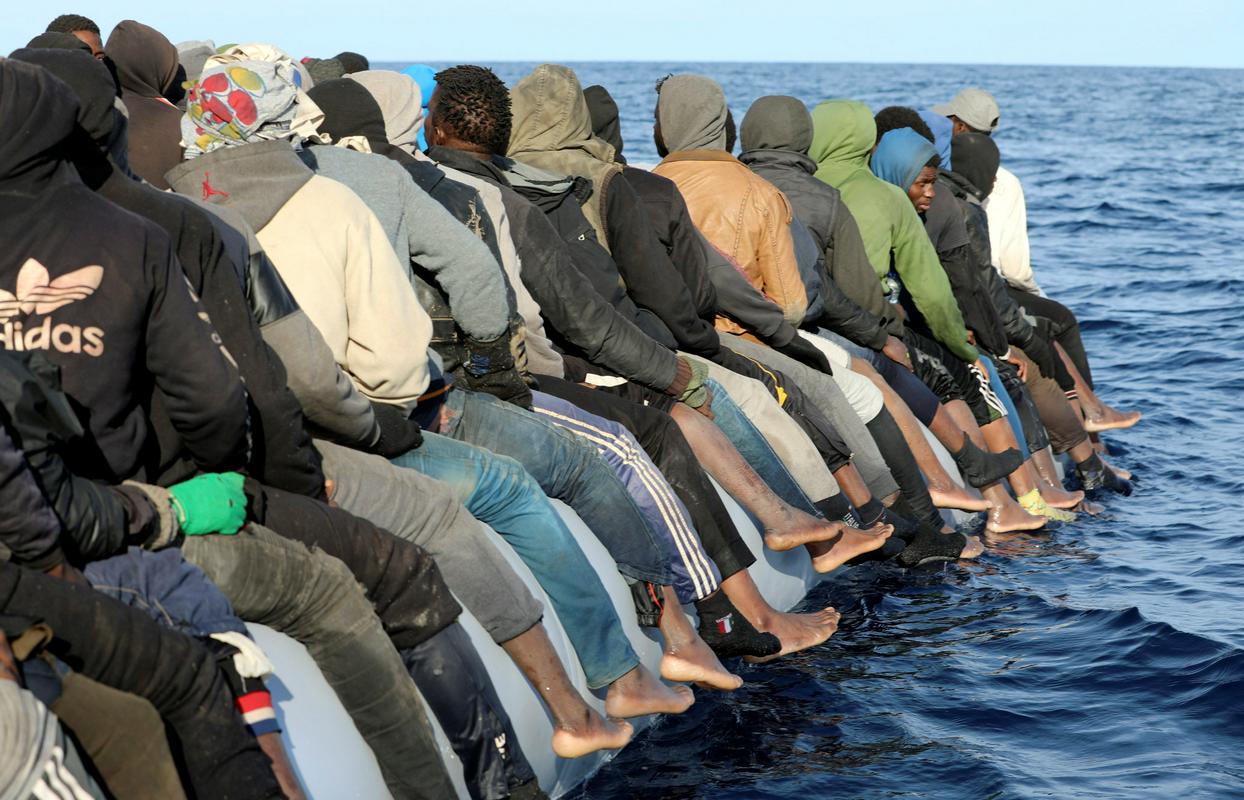
"If they want to stay here, they need to integrate culturally, regardless of their status. They might be refugees, economic migrants, they might have come here because they have fallen in love or from some other reason," said sociologist Sašo Gazdić.
Mass migrations of people on planet Earth are and will be a constant in the 21st century. They are not merely a consequence of political conflicts and wars; there are also climate refugees, forced out by drought. "Slovenia will not be able to change the movements of migrations and climate change, but we can cooperate with all international policies that contribute, geopolitically or environmentally, to solving the question of migrations in the future. And we can adapt to migration flows and create appropriate policies," said sociologist Sašo Gazdić, head of the Office for Cultural Diversity and Human Rights at the Ministry of Culture, at a discussion within the framework of the project Among us and with us that marked the 18th Word Refugee Day.
Katarina Štrukelj, head of the reception and support division at the Government Office for the Support and Integration of Migrants, said for MMC that applicants for international protection come to them after having reported this request to the police. First they are accommodated in a centre, where they apply, following which they undergo a preventive medical check and are informed about their rights and obligations in Slovenia. After the procedure, they are accommodated either in the Asylum Centre in Vič, in Logatec, which hosts vulnerable groups, such as families with small children, or in Kotnikova Street in Ljubljana, which offers accommodation to single persons. In the Asylum Centre, they wait for the outcome of their application. The kinds of distress faced by refugees vary. "They are very tired, as they arrived on foot; they are often soaking wet, having crossed the Kolpa River. Then there are various psychological problems. Some go through severe distress, because their families remained at home and they went on the journey alone. Post-traumatic stress disorder also occurs, especially in the case of refugees from war zones," explained Štrukelj, adding that a psychiatrist is always available.
Morocco, Algeria and Pakistan
Who are the refugees currently coming to Slovenia? "Currently we have mostly citizens of Morocco, Algeria and Pakistan, younger men aged between 25 and 40. These people left their country for various reasons. We have no problems with them, but we do work a lot with them. We first try to place them on a Slovene language course," explained the head of asylum centres, adding that they explain to refugees what is needed for a successful integration, if one day they want to live independently in Slovene society. "We also prepare them for the possibility of a negative decision on their application, because some get very disappointed," she said.
Most of the refugees do not want to stay in Slovenia, they want to go elsewhere. "When applying for international protection, many people immediately say that they want to go to France or Sweden. Their reasons are simple, most often they have relatives or friends there," she explained, adding that they never mention that social benefits are higher there. "In Slovenia, we still do not have enclaves, for example Afghani, Somali, Pakistani communities."
More than 80% of applicants "leave"
The great majority of international protection applicants "leave" Slovenia in the middle of the procedure. According to Štrukelj, such is the case with 80 to 90% of cases. "The Asylum Centre is not a prison; its system resembles the system in dormitories. People are always identified at the reception desk, so that we always know who is in the centre. But sometimes they go out, shopping or to attend a performance in town, and never come back," explained Štrukelj.

































































